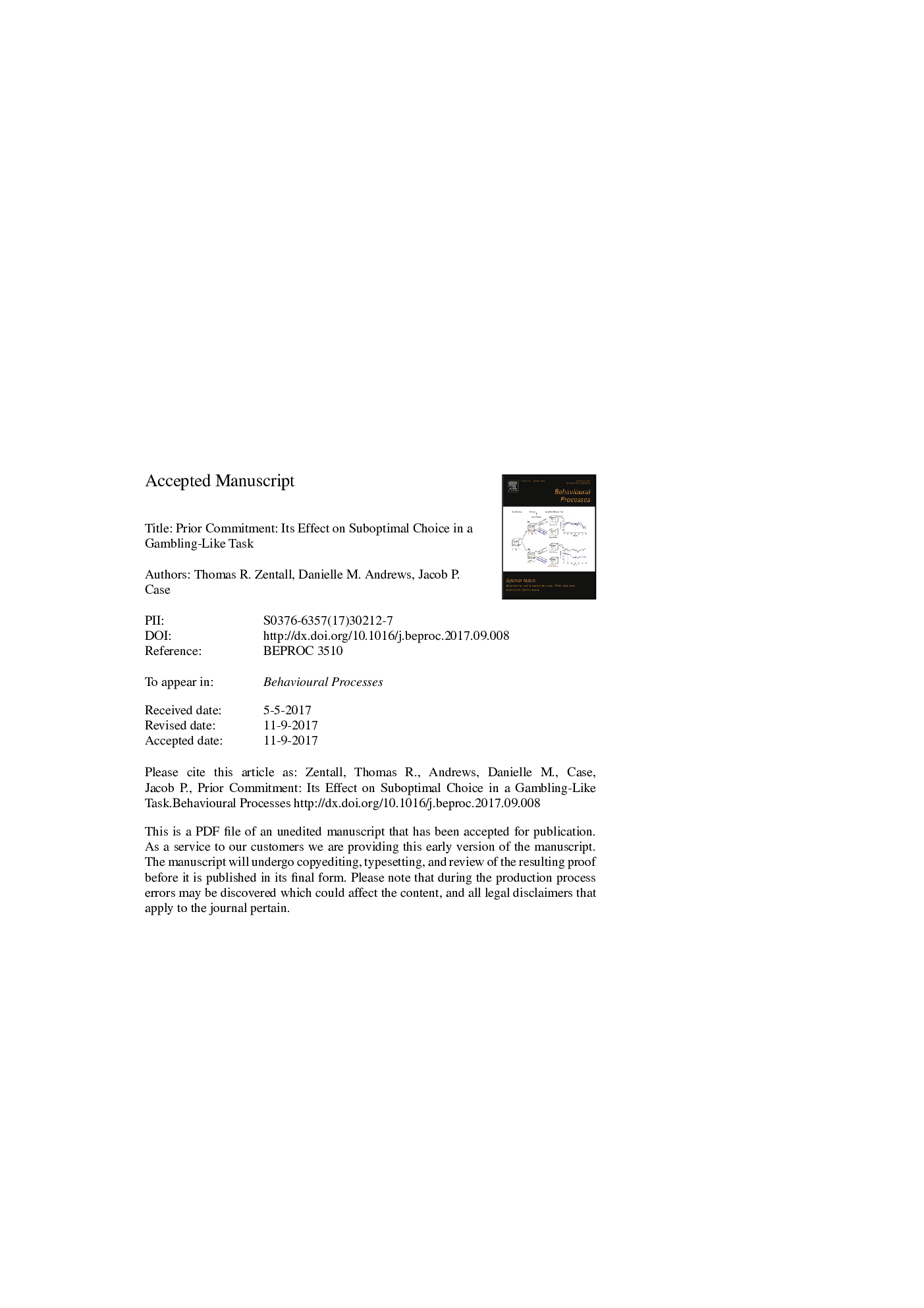| Article ID | Journal | Published Year | Pages | File Type |
|---|---|---|---|---|
| 5539629 | Behavioural Processes | 2017 | 37 Pages |
Abstract
Animals choose suboptimally when provided with cues that signal whether reinforcement is coming or not. For example, pigeons do not prefer an alternative that always provides them with a signal for reinforcement over an alternative that provides them with a signal for reinforcement only half of the time and a signal for the absence of reinforcement the rest of the time. In the present research, we tested the hypothesis that if the results of the choice are delayed, pigeons will choose less suboptimally. We tested this hypothesis by forcing pigeons to wait following their choice, requiring them to complete a fixed-interval 20-s schedule prior to receiving the signals for reinforcement. In Experiment 1, we gave the pigeons a choice between (a) a 50% chance of receiving a signal for reinforcement or a 50% chance of receiving a signal for the absence of reinforcement and (b) a 100% chance of receiving a signal for reinforcement. When the signal for reinforcement was delayed, most of the pigeons chose optimally. When it was not delayed, most of the pigeons chose suboptimally. In Experiment 2, we gave the pigeons a choice between (a) a 25% chance of receiving a signal for reinforcement or a 75% chance of receiving a signal for nonreinforcement and (b) a 100% chance of receiving an unreliable signal for reinforcement (predicting reinforcement 75% of the time). When the signal was not delayed, the pigeons showed a strong tendency to choose suboptimally but they chose suboptimally much less when the signal was delayed.
Related Topics
Life Sciences
Agricultural and Biological Sciences
Animal Science and Zoology
Authors
Thomas R. Zentall, Danielle M. Andrews, Jacob P. Case,
